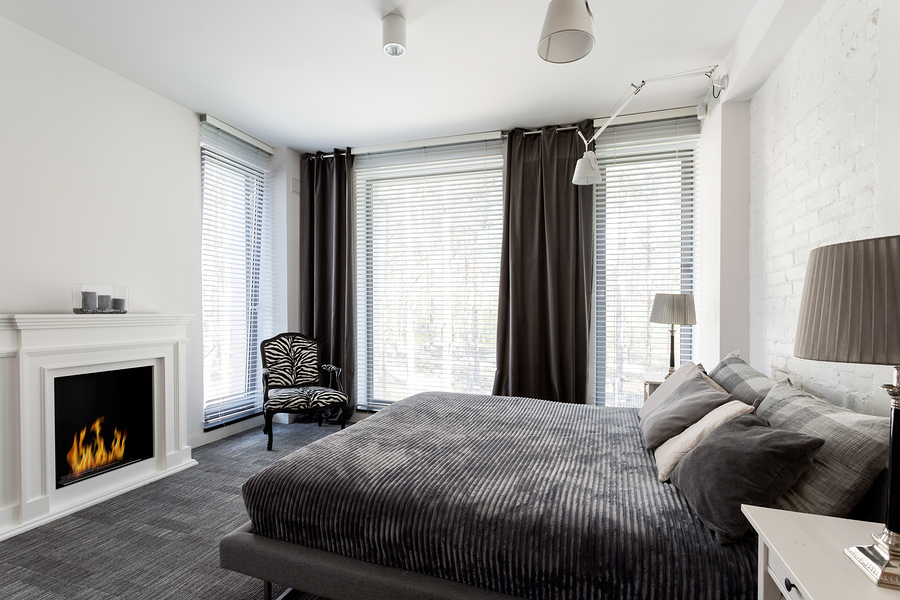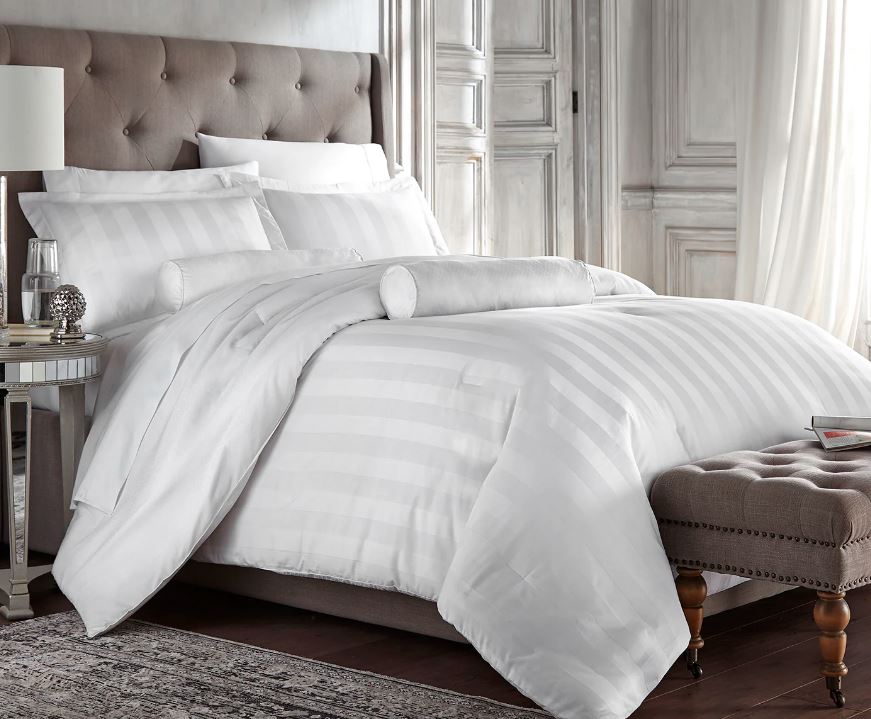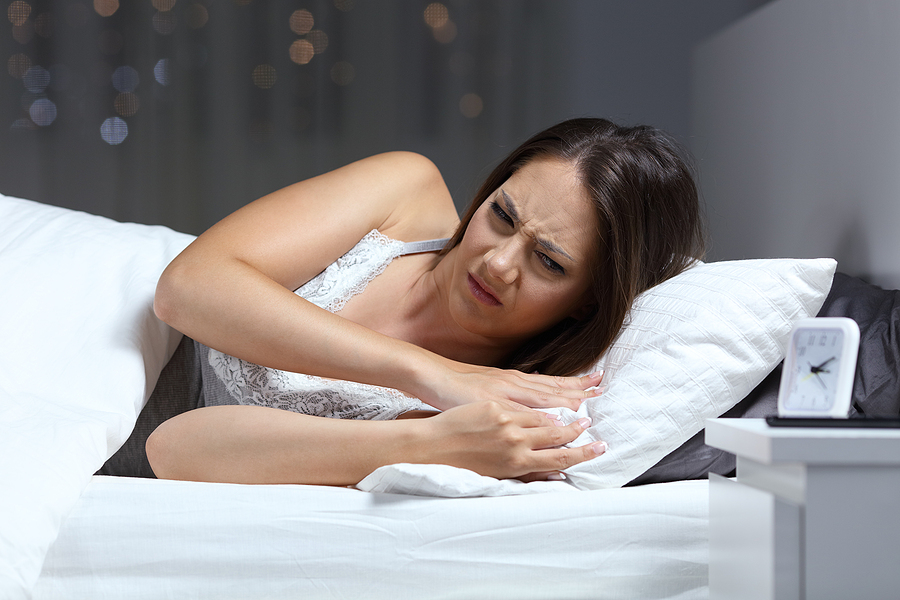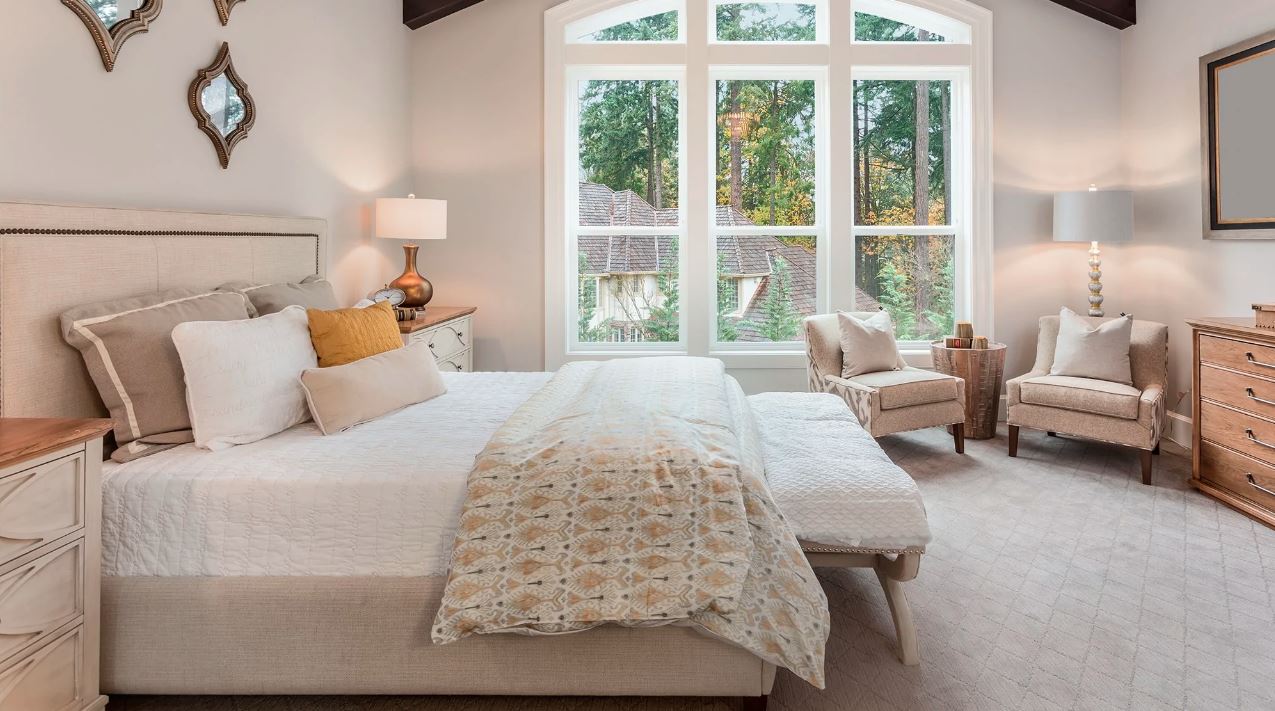Prioritize better sleep this New Year by addressing common sleep issues. Explore strategies, from managing anxiety to creating a conducive sleep environment. Delve into the importance of various pillow types, including hotel-quality options, in managing conditions like sleep apnea. Consider Sobel Westex’s luxury pillows designed for ultimate comfort and support to elevate your sleep experience.
What’s in this post:
- Understanding Sleep Issues: Identifying common causes affecting the quality of sleep.
- Addressing Sleep Disruptors: Tackling issues like anxiety, sleep apnea, and Nocturia.
- Improving Sleep Habits: Implementing practical strategies for better sleep.
- Healthy Sleep Practices: Establishing a bedtime routine and avoiding sleep disruptors.
- Sobel Westex Luxury Bedding: Elevating sleep experience with premium bedding products.
Maximize Your Sleep: New Year’s Resolution for Improved Rest and Comfort
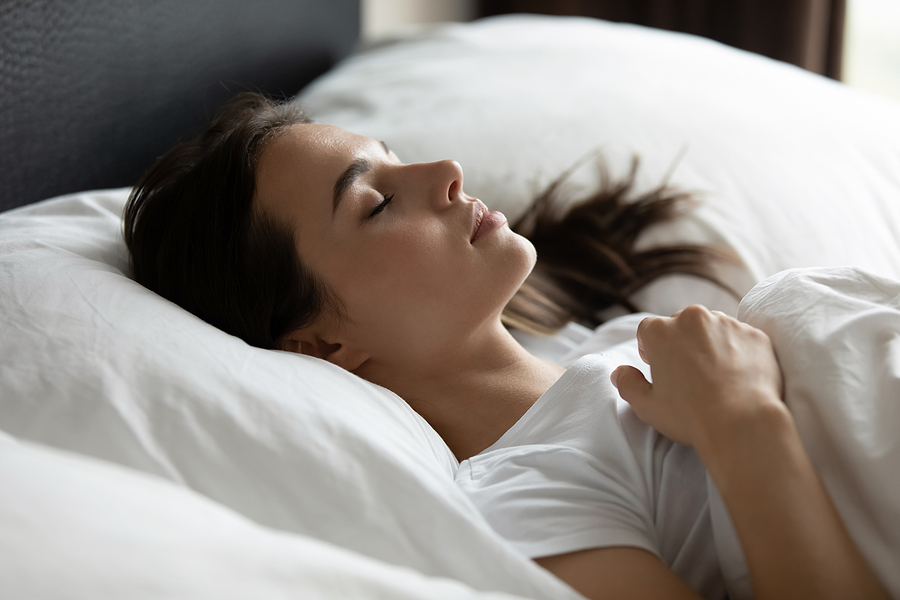
Getting a good night’s sleep is crucial for overall well-being, and having the right sleep essentials, including luxury pillows, plays a significant role. In today’s fast-paced world, various factors can hinder our ability to achieve restful sleep. Individuals grappling with chronic sleep deprivation or poor sleep face a heightened risk of health issues such as depression, high blood pressure, diabetes, and dementia. But there are many simple things you can do to improve your sleep and help protect your health. This year, make getting better sleep your New Year’s resolution.
Common Causes of Sleep Problems

Before you decide on your sleep improvement plan, stop and consider the quality of your sleep and what may be affecting your ability to get a good night’s sleep. Here are a few common issues people deal with that cause sleep problems:
Not Prioritizing Sleep
Life can get so busy that sometimes we don’t put aside enough time to sleep. Most adults need 7-8 hours of sleep per night on average. Whether it’s work, kids, caring for elderly parents, or other obligations, it seems there are never enough hours in the day. The challenge for all of us is to prioritize our activities, including time for sleep. More healthy sleep will make your waking hours more productive and enable you to get through your day with more energy.
Fortunately, there are numerous simple steps you can take to enhance your sleep and safeguard your health. This year, consider making improved sleep a central part of your New Year’s resolution.
Sleep Apnea
Sleep apnea is a condition where the sleeper stops breathing during sleep. This happens when the tissue at the back of the throat closes. Signs you may be experiencing sleep apnea are snoring, waking gasping for breath, dry mouth on waking, headache, and daytime sleepiness.
While it’s crucial to recognize that a new pillow alone won’t solve all sleep problems, choosing the right pillow can play a pivotal role in promoting clear airways. For those with sleep apnea, adjusting sleep positions to favor side or stomach sleeping is recommended. Explore different types of pillows to find the one that suits your sleep position or low-height pillows for stomach sleeping, which can enhance comfort and support for a smoother transition.
Additionally, considering the loft and material of your pillow is essential—opting for a low loft if you sleep on your stomach and choosing hypoallergenic materials like latex can contribute to a more conducive sleep environment, supporting not only a good night’s sleep but also respiratory well-being. Consider luxury pillows for a more restful night’s sleep
See your doctor if you think you have this condition as it can involve other health issues. It is treatable so you can get back to healthy sleep.
Anxiety and Worry
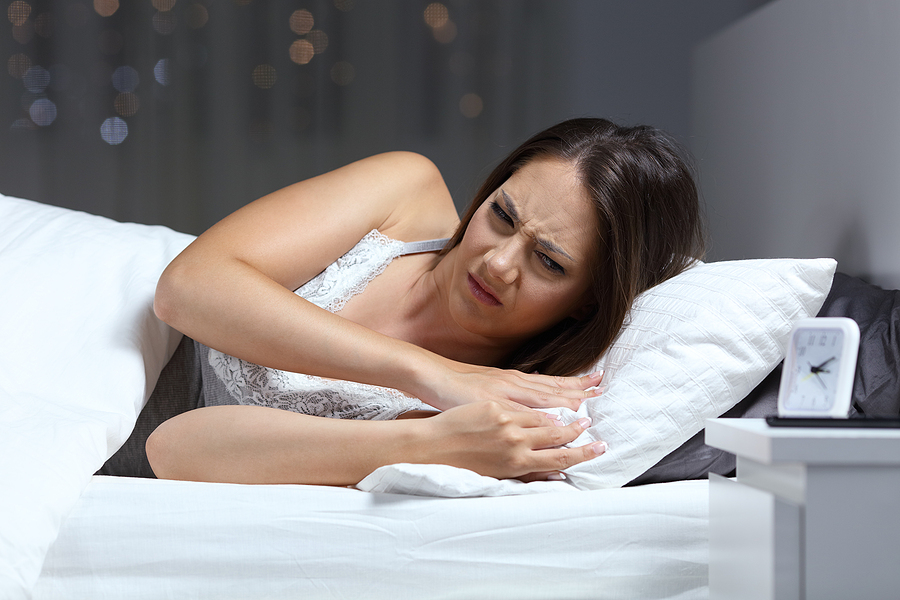
Anxiety is something a lot of people deal with at one time or another. Chronic anxiety and worry put your mind and body in fight or flight mode, raising hormones, including adrenaline and cortisol, that raise heart rate, blood pressure, and breathing rate, and cause your mind to race. It can affect your ability to fall asleep or stay asleep. Long term, you may experience health problems. There are many ways to address anxiety on a daily basis to help manage your stress. If you suffer from stress or anxiety, using relaxation techniques before bed is important for better sleep.
Nocturia
Nocturia is waking up frequently to use the bathroom. Especially for older people, this is a common sleep disruptor. Notice how often this happens and adjust your fluid intake to reduce the likelihood of waking up. If you take medication, such as a diuretic for blood pressure, ask your doctor if it could be causing you to need to get up at night.
Caffeine, Alcohol, or Medications
Stimulants like caffeine can prevent you from falling asleep. Alcohol may make you feel sleepy, but it disrupts your ability to sleep soundly. Certain drugs, including antidepressants, thyroid and blood pressure medications, and decongestants, can affect your sleep as well, so check labels or ask your doctor. You may be able to adjust the dosage or schedule to allow you to sleep better.
Pain and Discomfort

Even minor pain can become more pronounced when attempting to sleep. Individuals dealing with arthritis or other conditions leading to muscle, nerve, or joint pain may find their sleep adversely affected. The choice of sleep accessories that provide adequate comfort and support, including a supportive mattress and luxury pillows, is crucial in managing pain. Poor sleep posture, often exacerbated by an unsupportive mattress or ill-fitting pillows, can disrupt sleep, contributing to fatigue and heightened discomfort. For those experiencing occasional head or back pain, investing in a new mattress and selecting a luxury pillow tailored to your sleep style may prove instrumental in achieving a more restful night’s sleep.
Allergies
Allergies can be very disruptive to sleep, keeping you awake or just disturbing your sleep enough that you wake up feeling fatigued. Allergies may be related to your environment, so addressing air quality where you sleep and making sure you are using clean and hypoallergenic bedding will help reduce nighttime allergies. Consider using a pillow protector to minimize allergens.
How to Get Better Sleep
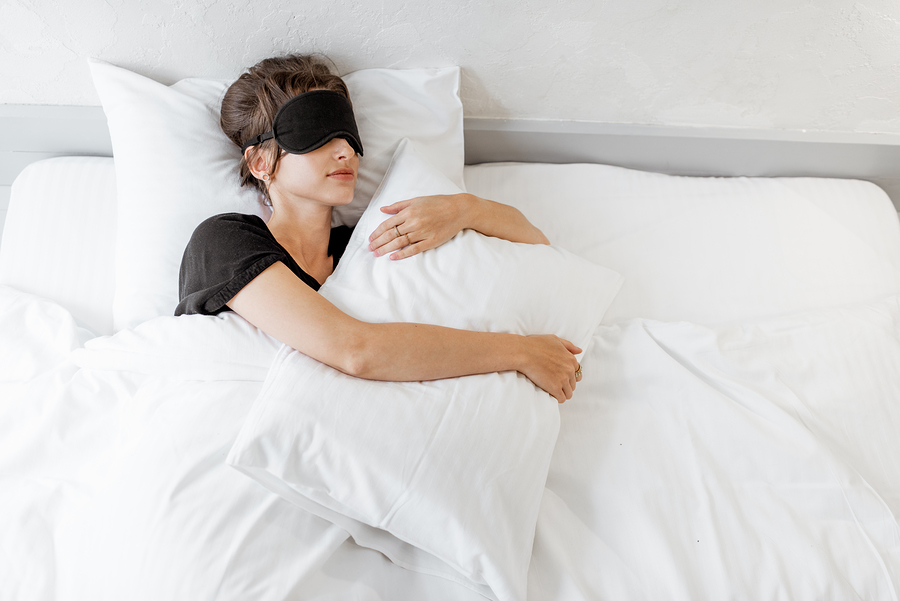
No matter the cause of your sleep issues, there are things you can do to achieve better sleep. With a few adjustments and some planning ahead, better sleep is possible for everyone. Creating a conducive sleep environment involves choosing bedding that contributes to overall comfort and support, such as high-quality cotton sheets and luxury pillows. If your condition is medical, the first step is to address those issues with your doctor, for example adjusting medication dosage or schedule, or learning to use a CPAP machine to control your sleep apnea. Whatever the causes of your sleep issues, there are a number of actions you can take to achieve better sleep.
Have a Bedtime Routine.
Keep a regular sleep schedule and establish a bedtime routine that allows time to slow down and calm down from the day’s activities.
Don’t Eat Before Bed.
If your digestive system is hard at work digesting a large meal, it may affect your sleep. Experiment with eating an earlier or lighter evening meal.
- Reduce Fluids at Bedtime. If you find yourself waking up to use the bathroom, and then not being able to get back to sleep, make it a habit to not drink fluids in the hour or two before bedtime.
- Avoid Alcohol and Caffeine.
Both of these will prevent you from getting restful, healthy sleep, so avoid them in the evening. - Drink Chamomile Tea. Chamomile tea is well known for its ability to relax and help you sleep. It is also great for digestion, which will also lead to more restful sleep.
- Avoid Screens Right before Bed. The blue light of computer screens and cell phones can fool your brain into thinking it’s daytime, disturbing your body’s normal sleep cycle and keeping you awake longer.
- Block Out Sunlight while you Sleep. If the sun wakes you up too early, use blackout curtains or a simple sleep mask.
- Take a Warm Bath. If you experience pain, tension, anxiety or worry, a warm bath will help you relax. Add Epsom salts which provide magnesium. When absorbed through the skin, magnesium both reduces pain and makes you feel more calm and relaxed.
- Lower Room Temperature. Your body temperature naturally goes down slightly as you sleep. If your room is too warm, you may wake up feeling hot. The best sleep temperature is between 60-67 degrees.
- Use White Noise. If part of your sleep problem is outside noise, such as traffic, find a calming sleep sound or white noise app. It will provide a consistent background sound pattern that will calm your mind and let it tune out other noises.
- Get Regular Exercise, Sun, and Fresh Air. One of the best and healthiest ways to fall into deep, healthy sleep is to use the sun and fresh air to both set your body clock and to flood it with healthy hormones. Regular exercise has been shown to help people fall asleep faster and sleep more deeply. Avoid exercise right before bed, however, as it can stimulate you to a more wakeful state.
- Avoid Daytime Naps. Napping is good sometimes, but too much may tell your body it doesn’t need sleep at night when you want to get long, restful sleep. Nap less to be more ready to sleep at bedtime.
- Get a New Mattress. Got a lumpy or uncomfortable mattress? If you aren’t able to achieve total relaxation on your mattress, it may be time to shop for a new one.
- Change Your Bedding. Revitalizing your bedding is a key step in improving your sleep environment. Opt for sheets made with high-quality cotton—known for its natural hypoallergenic properties, softness, and absorbency. If your current sheets lack comfort, it may be time to explore alternatives such as luxury options like Egyptian cotton. This choice ensures durability, reducing the likelihood of pilling that can make sheets feel rough and uncomfortable. Upgrading your bedding to premium options, including luxury sheets and pillows, contributes to overall sleep quality, providing comfort, support, and a restful night’s sleep.
- Use the Right Pillow. Recognize the pivotal role a pillow plays in ensuring a restful night’s sleep. Aged pillows may harbor allergens, leading to discomfort and potential skin issues. Regularly replace your pillow, ideally every few years, to maintain a clean sleep environment. Aligning with your sleep style is crucial; an ill-fitting pillow can misalign your head, neck, and spine, causing discomfort and pain. If your current pillow leaves you restless or results in morning aches, seek a supportive, high-quality pillow tailored for your unique sleep preferences, such as quality or alternative fill pillows. Consider investing in deluxe hotel pillows for added luxury.
Get the Best Hotel Bedding and Pillows

Parents bonding with their two children, surrounded by cozy bedding and soft pillows in bed.
Indulge in the epitome of comfort with pillows and bedding from Sobel Westex, boasting a range of options to suit various sleep styles. From hotel-quality pillows to luxury and premium bed pillows, our collection is trusted by the world’s premier hotels, resorts, and cruise lines. Our commitment to excellence is reflected in the use of the finest cotton and meticulous manufacturing processes. Explore our collection, featuring pillows designed for comfort and support alongside high-quality sheets, bedding sets, bath towels, spa robes, and more. Elevate your sleep experience with Sobel Westex, available to everyone at sobelathome.com.

